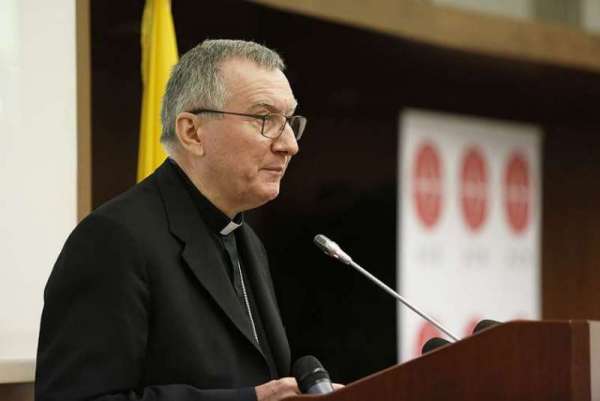Cardinal Parolin: the Church's financial scandals 'should not be covered up'

In an interview Thursday, Cardinal Pietro Parolin, Vatican secretary of state, spoke of uncovering a financial scandal, stating that the hidden scandal increases and strengthens it.
"Mistakes must make us grow in humility and push us to convert and improve, but they do not dispense us from our duties," the Vatican Secretary of State told the Italian cultural association Ripartelitalia on 27 August.
Asked whether "scandals and inefficiencies" damage the credibility of the Church in proposing economic ethics, the cardinal said that "errors and scandals must not be covered up, but recognized and corrected or sanctioned, in the economic field as in others".
“We know well that the attempt to hide the truth does not lead to the healing of evil, but to increase and strengthen it,” said Parolin. "We must learn and respect with humility and patience" the requirements of "fairness, transparency and economic competence".
“In fact, we have to recognize that we have often underestimated them and realized this with a delay,” he continued.
Cardinal Parolin said that this is not only a problem in the Church, "but it is true that good witness is expected in particular from those who present themselves as 'masters' of honesty and justice".
"On the other hand, the Church is a complex reality made up of fragile, sinful people, often unfaithful to the Gospel, but this does not mean that she can renounce the proclamation of the Good News", he said.
The Church, he added, "will not be able to renounce to affirm the needs of justice, of service to the common good, of respect for the dignity of work and of the person in economic activity".
The cardinal explained that this "duty" is not a question of triumphalism, but of being the companion of humanity, helping it to "find the right path thanks to the Gospel and the right use of reason and discernment".
The Secretary of State's comments come as the Vatican faces a massive income deficit, months of financial scandal, and an international banking inspection scheduled for late September.
In May, Fr. Juan A. Guerrero, SJ, prefect of the Secretariat for the Economy, said that in the wake of the coronavirus pandemic, the Vatican expects a reduction in revenue of between 30% and 80% for the next fiscal year.
Guerrero rejected suggestions that the Holy See could default, but said “that doesn't mean we're not naming the crisis for what it is. We are certainly facing difficult years “.
Cardinal Parolin himself was involved in one of the Vatican's controversial financial affairs.
Last year, he claimed responsibility for arranging a Vatican loan to a bankrupt Italian hospital, the IDI.
The APSA loan appears to have violated the 2012 European regulatory agreements that prohibited the bank from granting commercial loans.
Parolin told CNA in November 2019 that he also arranged with Cardinal Donald Wuerl a grant from the U.S.-based Papal Foundation to cover the loan when it could not be repaid.
The cardinal said that the agreement was "executed with good intentions and honest means", but that he felt "obliged" to address the issue "to put an end to a controversy that takes away time and resources from our service to the Lord, to the Church and the Pope, and disturbs the conscience of many Catholics “.